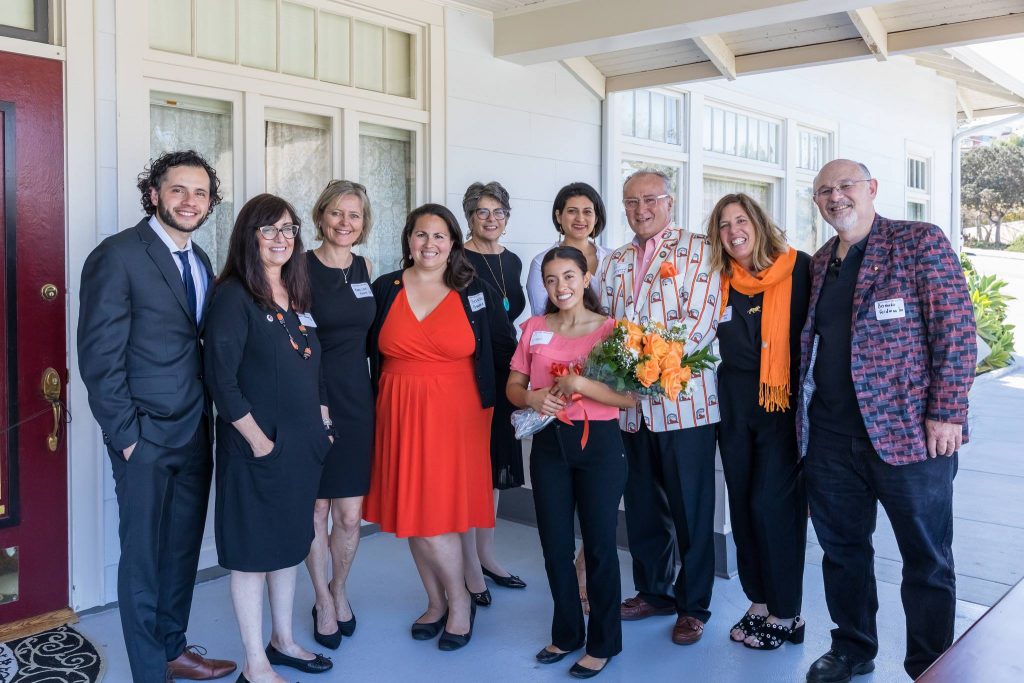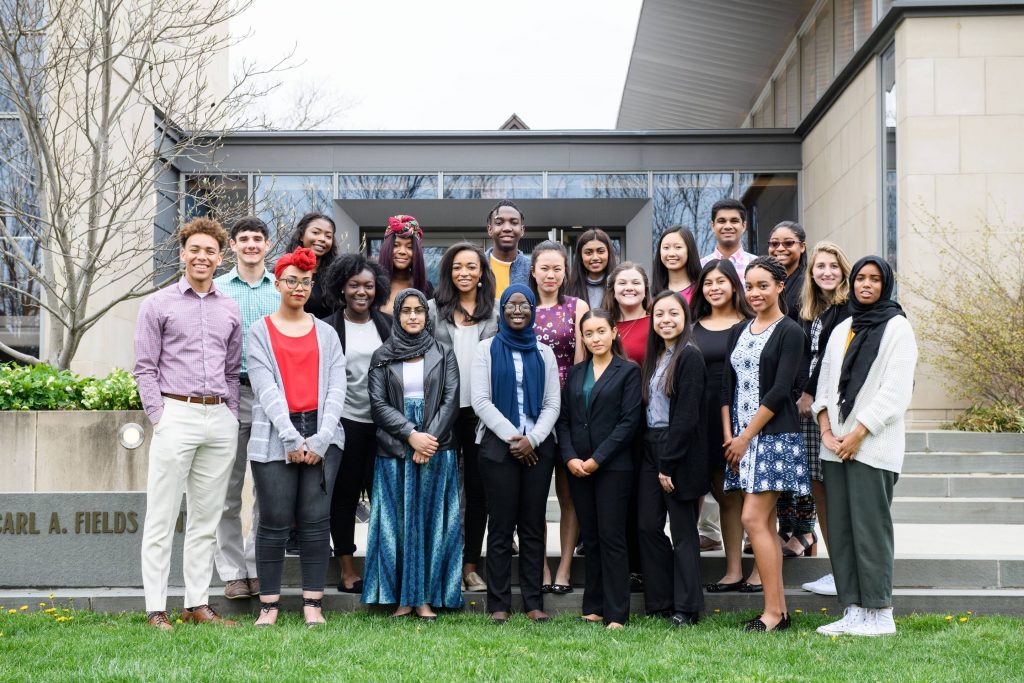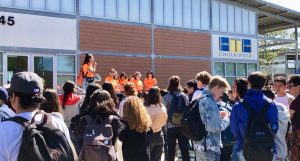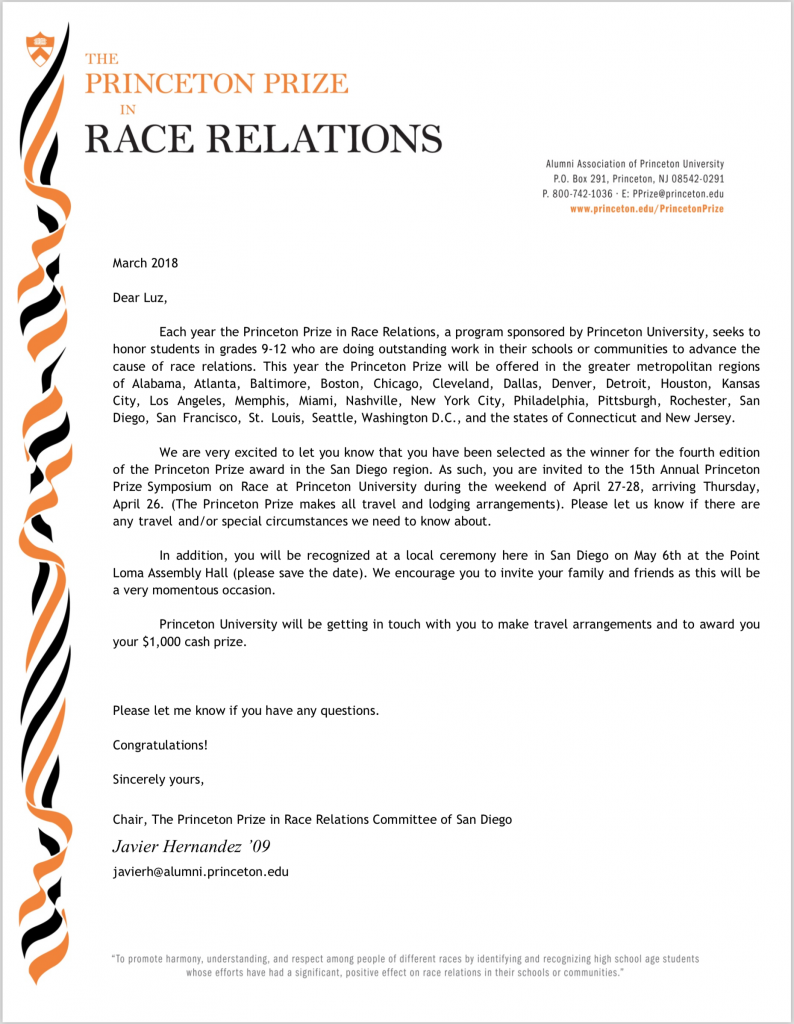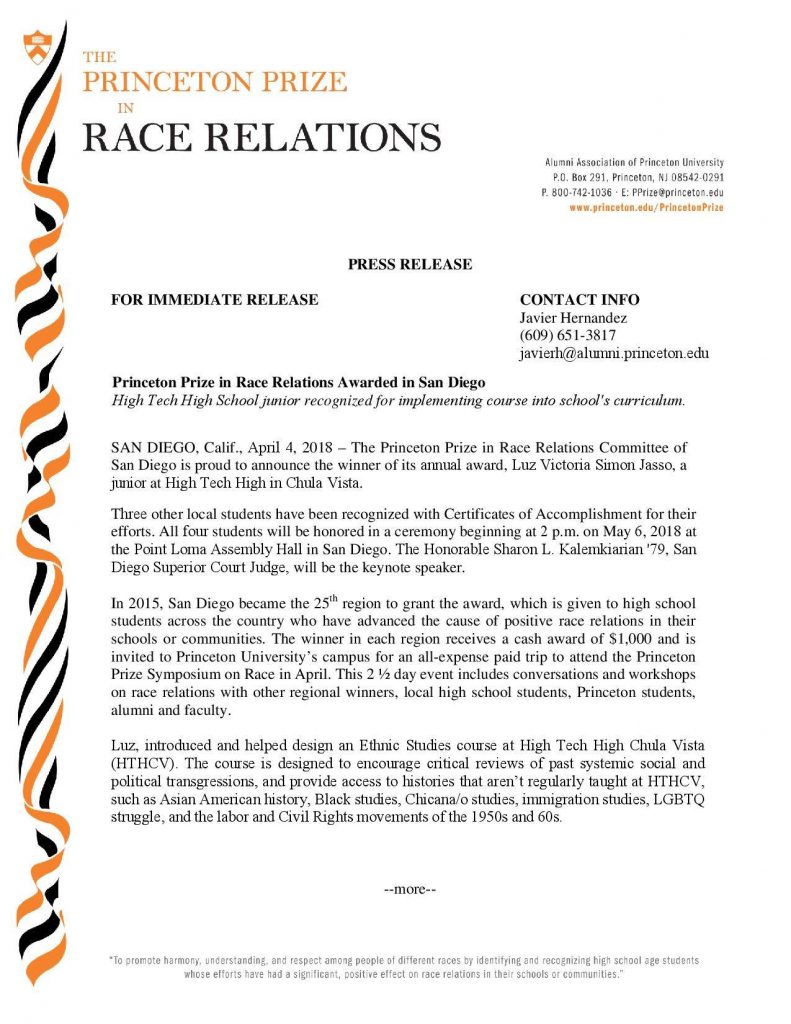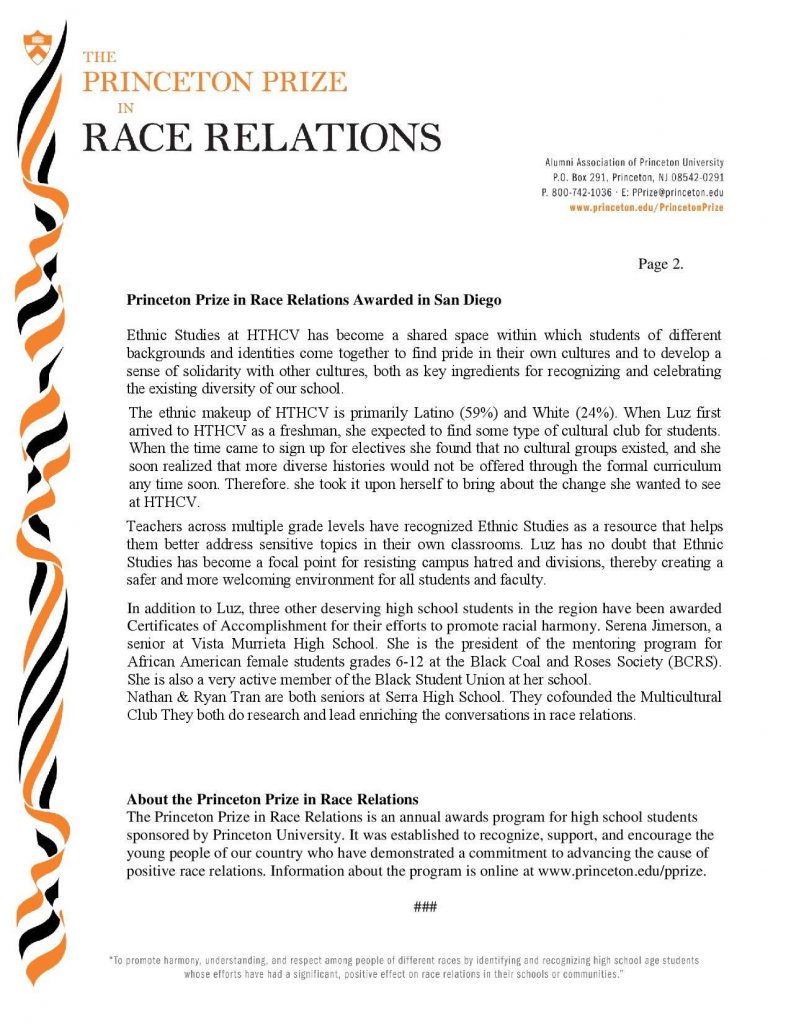The 4th annual San Diego Princeton Prize in Race Relations Award Ceremony took place in Point Loma on May6, 2018. It was a beautiful sunny day in San Diego, a perfect addition to the wonderful honor of receiving this award. Only one week after my trip to Princeton University, I was one of four local San Diego students who were honored with the opportunity to attend a ceremony that was organized by the Princeton Prize Committee of San Diego. This event was especially for our families, Princeton Alumni, and local leaders such as the amazing keynote speaker, San Diego Superior Court Judge Sharon L. Kalemkiarian.
The program for the event shined a light on the amazing work we have done in our schools. It was amazing to have the work that I do be recognized and validated by local Princeton alumni, friends and family. I am deeply grateful for the opportunities that the alumni have provided me with with this award, and feel the need to personally thank the members of the selection committee of San Diego: Javier Hernandez (Chair), Marie-Line Allen, Bernardo Ferdman, Carol Hasson, Gabriela Kovats, Beverly Randez, Tony Rodriguez, and Mary Slattery Johnson. I also have to thank my parents, family and friends who attended an informal after-ceremony “tardeada” that included carne asada and my grandmother’s tamales.

